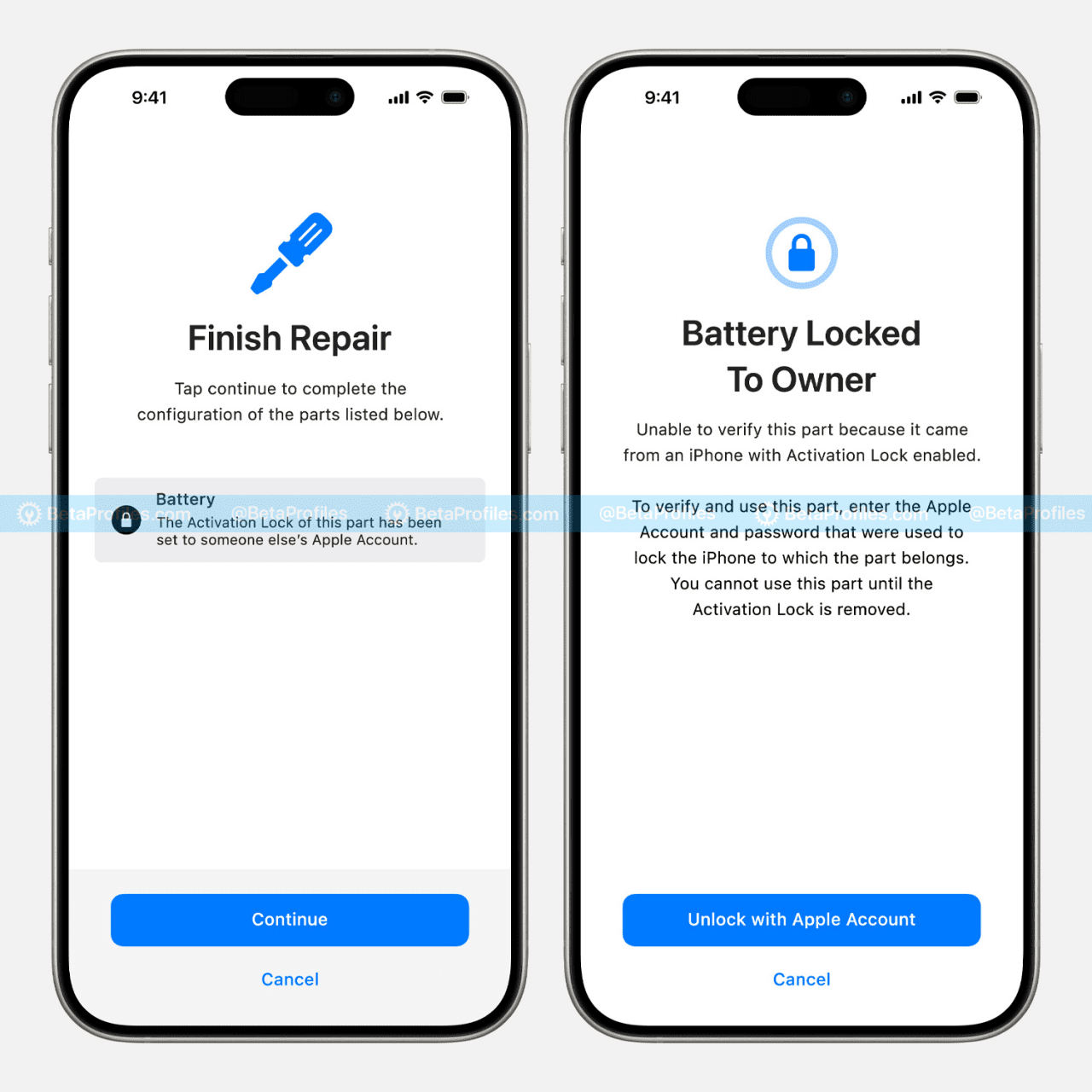
Image: @BetaProfiles
Once Lost Mode is activated on an Apple device, it is incredibly difficult to disable unless done by the original owner or with the correct password. Without deactivating Lost Mode, the device is virtually unusable.
When an iPhone is stolen, the first step taken by those involved is to aggressively send phishing links, attempting to lure the user into entering their password.
If the black market operators fail to obtain the user’s Apple ID password, the fate of the stolen iPhone is to be disassembled, with its components sold to third-party repair shops.
However, most of the iPhone’s key components are embedded with chips, which Apple uses to identify original parts from third-party replacements. Apple has now integrated Lost Mode into these chips, enhancing the security of its components.
Replaceable parts such as Battery, Display, Camera, etc., in iPhone 12 and later can now be linked to your Apple Account and activate Activation Lock if they are installed in another iPhone.
This feature is now active in iOS 18 RC. pic.twitter.com/6COr8ACsaE
— Beta Profiles (@BetaProfiles) September 12, 2024
In the newly released iOS 18 RC, Apple has enabled Activation Lock for major components such as the screen, battery, and camera. Once Lost Mode is activated by the user, these components are also automatically locked.
If these locked components are installed into another iPhone and activated online, the device will display a notification stating that it requires repair, pinpointing the specific component that has been locked and must be unlocked to function.
This feature currently supports the iPhone 12 and later models. By default, the Find My feature is enabled on iPhones, meaning that after an iPhone is reported lost and Lost Mode is activated, the components will also be locked.
Theoretically, this doesn’t completely solve the issue of parts theft, as some components, like iPhone batteries, can still have their cells removed and replaced with chips that are not locked. However, this new feature will significantly increase the cost and difficulty for black market operators, aiding in the fight against such illicit activities.
Apple has yet to officially comment on this feature, but with the imminent release of the iOS 18 final version, it is expected that detailed support documents will be provided to explain which components can be locked.